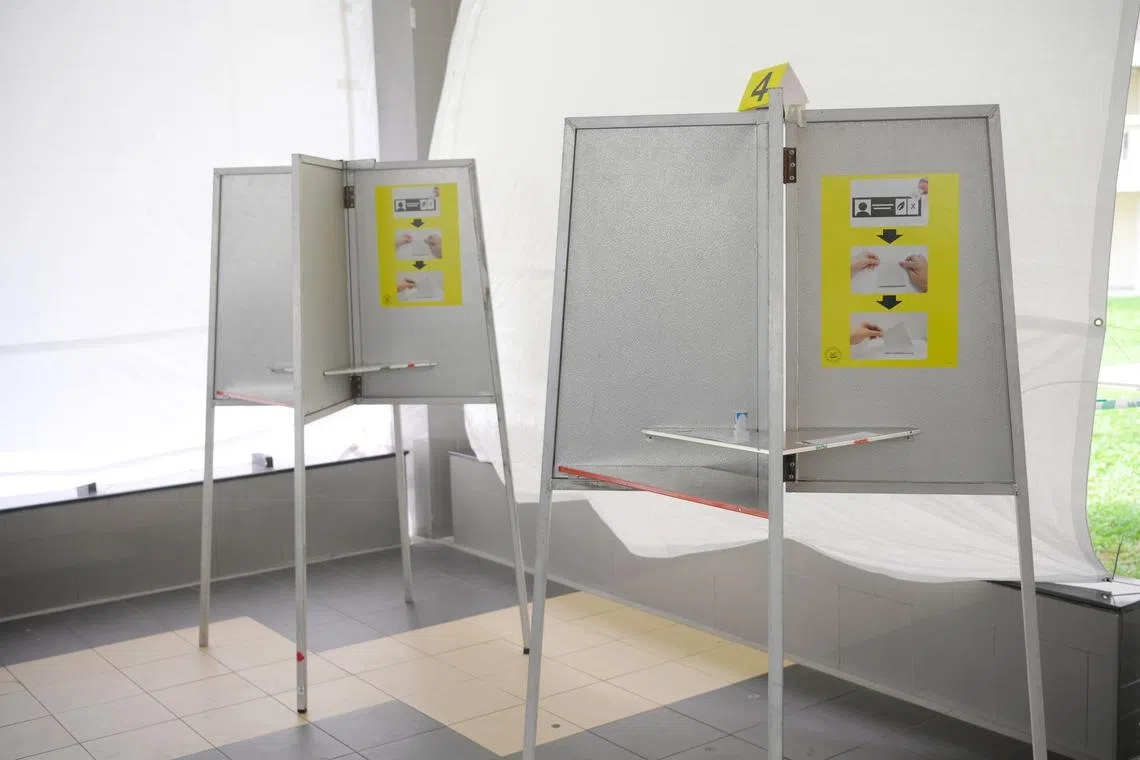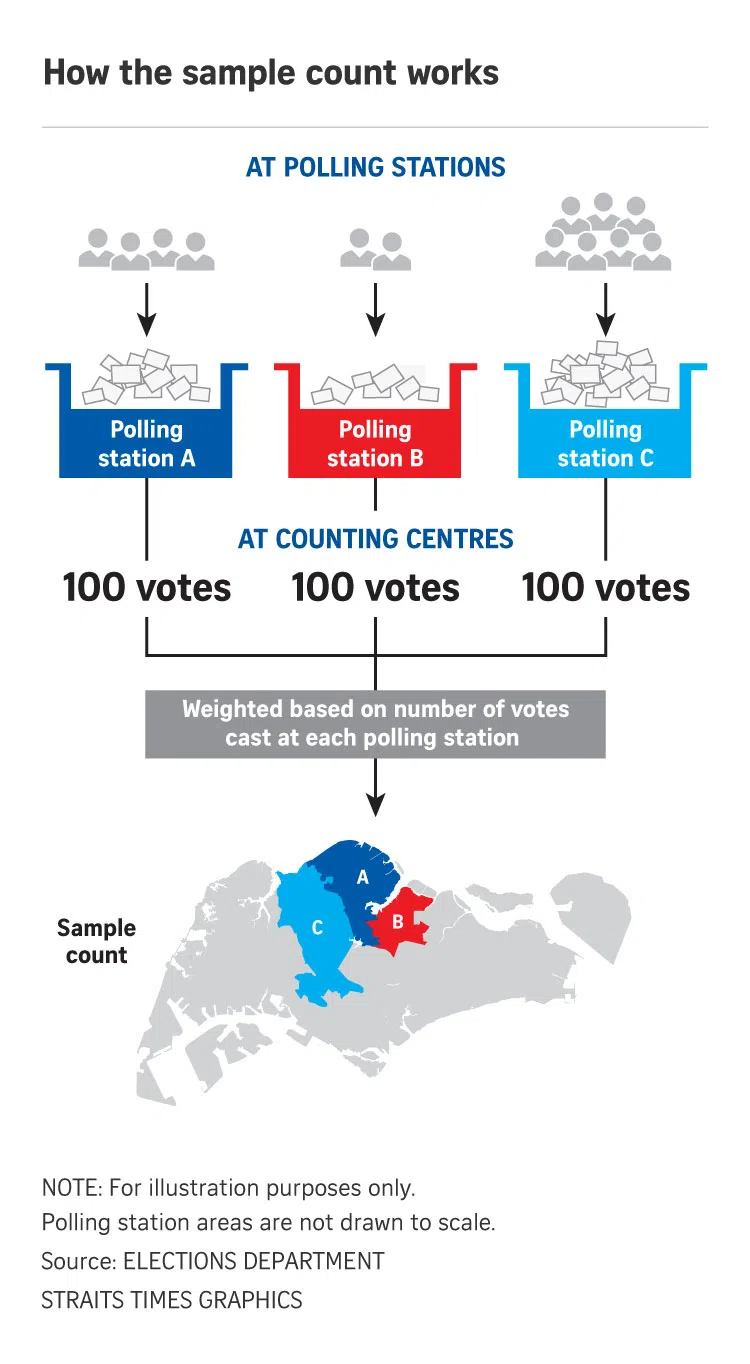When will the sample count for presidential election be announced? How does it work?
Sign up now: Get ST's newsletters delivered to your inbox

This is the first presidential election where an official sample count result is made public.
ST PHOTO: MARK CHEONG
SINGAPORE – When polls close on Friday, Singaporeans will get an early indication of the outcome of the presidential election at around 10pm to 11pm, before the final count is in.
This is because the Elections Department (ELD) website will publish the results of a sample count, which is expected to be completed two to three hours after polling closes at 8pm.
The final result is expected to come around midnight.
This is the first presidential election where an official sample count result will be made public.
Q: What are the reasons for having a sample count?
A: A sample count helps to prevent speculation and misinformation from unofficial sources while counting is under way, before it is completed and election results are announced, said the ELD website.
This is because the final election result may take many hours to be confirmed, especially if there is a close fight.
Sample counts are also used by election officials to check against the final count result, said ELD.
In the 2011 Presidential Election, the close race prompted a recount shortly after 1am, with official results declared only at 4.30am.
In that election, candidates and their counting agents could observe the sample counts during the counting process and take note of the figures.
The first time that results of sample counts were publicly released in an election was during the 2015 General Election. Polls closed at 8pm, and the first sample count was released at about 9.40pm.
In the 2020 General Election,
Q: How is the sample count carried out?
A: The sample count is done at the start of the counting process.
At the counting centre, a counting assistant will pick up a random bundle of 100 ballot papers from the votes cast from a polling station.
There are 1,264 local polling stations for this election.
This is done in front of the candidates and counting agents present.

The votes for each candidate are then added up. The tally from each polling station is given a weighting to account for differences in the number of votes cast at each polling station.
This means the same random bundle of 100 votes is given more weight if it comes from a polling station where more people voted.
The sample count takes into account only valid votes, so spoilt votes are not considered part of the percentages.
It also does not take into account the votes cast at nursing homes, where special polling stations are being set up
Q: How accurate are sample counts?
A: There is a 95 per cent confidence rate for the way the sample count is done here, and the margin of error is 4 percentage points.
This means that the sample count estimate should not differ from the actual voting result by more than 4 per cent for 95 per cent of the estimates made.
A comparison of the official results with sample count results for the 2020 General Election found that out of the 31 constituencies, most had a difference within 2 percentage points.
Seven SMCs had a larger difference, ranging from just slightly more than 2 percentage points to 5 percentage points.
Of these, three SMCs – Punggol West, Pioneer and Kebun Baru – exceeded the 4 percentage point margin of error by between 0.02 and 1.08 percentage points.
In the 2015 General Election, all sample count figures were within 2 percentage points of the official results for each constituency, except MacPherson SMC, which had a difference of about 2.6 percentage points.
Q: Will the sample count show results at the local level?
A: Unlike in a general election, where sample count results are announced for each constituency, the sample count for the presidential election will be for votes across the whole country.

AFP



